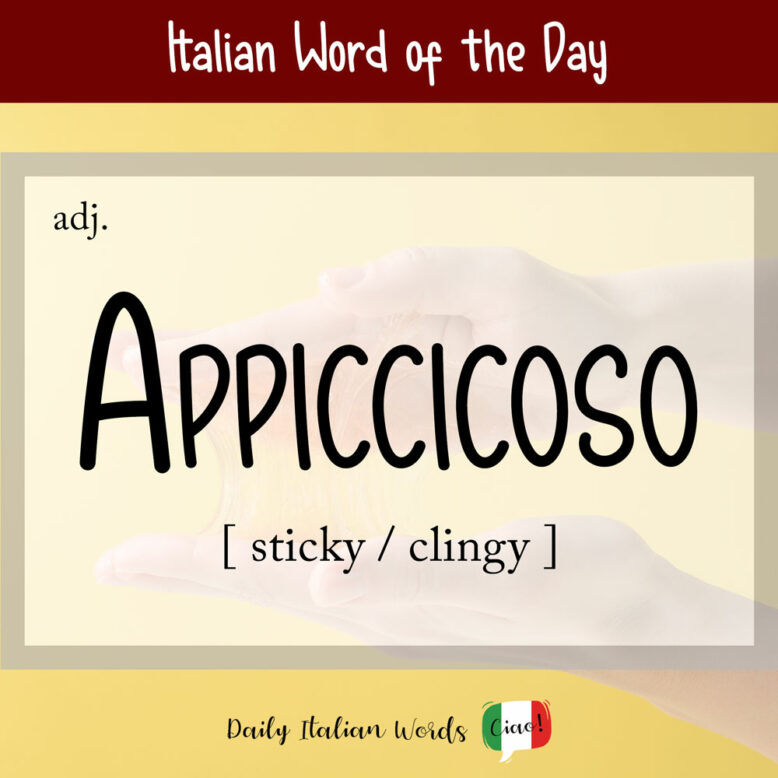Soon after our son turned six months old, he went from being a very sociable baby who would flash his gummy smile at pretty much anyone in his immediate vicinity to being extremely shy and appiccicoso, which is the Italian word for clingy / clinging (when figuratively talking about a person) or sticky (when talking about an object such as honey or glue).

The word is formed of the verb appiccicare (to stick / to adhere) and the suffix -oso which turns verbs into adjectives.
Because it is an adjective, the ending changes according to the gender and/or plurality of the subject:
- appiccicoso = masculine, singular
- appiccicosa = feminine, singular
- appiccicosi = masculine, plural
- appiccicose = feminine, plural
Mio figlio è veramente appiccicoso in questi giorni. Vuole sempre stare in braccio!
My son is very clingy these days. He always wants to be held!

Il bambino ha le dita molto appiccicose.
The boy has very sticky fingers.

Some terms that are related to appiccicoso include:
- appiccicato = stuck, glued on, clingy
- appiccicaticcio = sticky, muggy (the pejorative form of appiccicato)
Heather Broster is a graduate with honours in linguistics from the University of Western Ontario. She is an aspiring polyglot, proficient in English and Italian, as well as Japanese, Welsh, and French to varying degrees of fluency. Originally from Toronto, Heather has resided in various countries, notably Italy for a period of six years. Her primary focus lies in the fields of language acquisition, education, and bilingual instruction.


